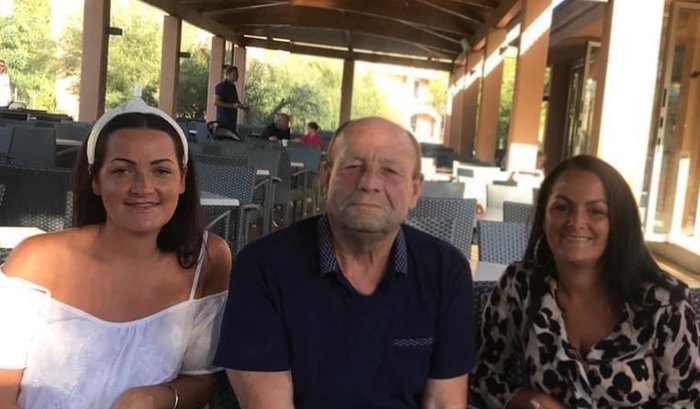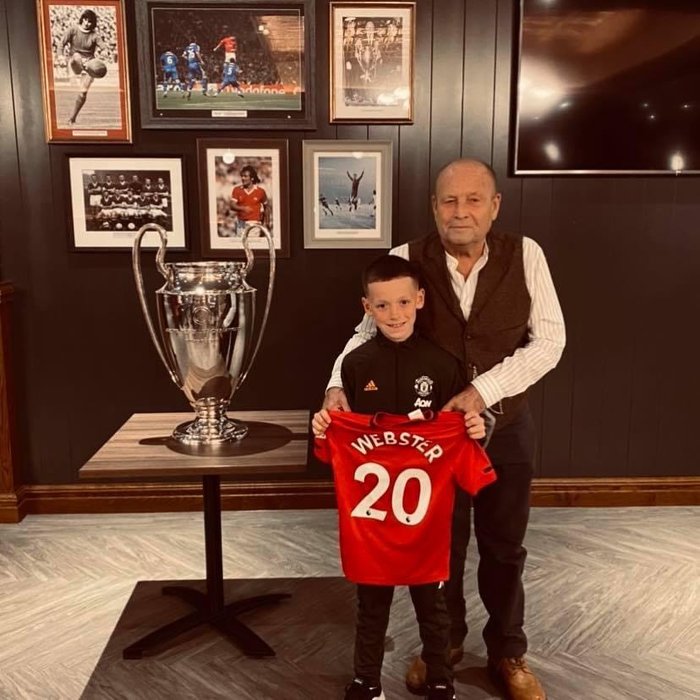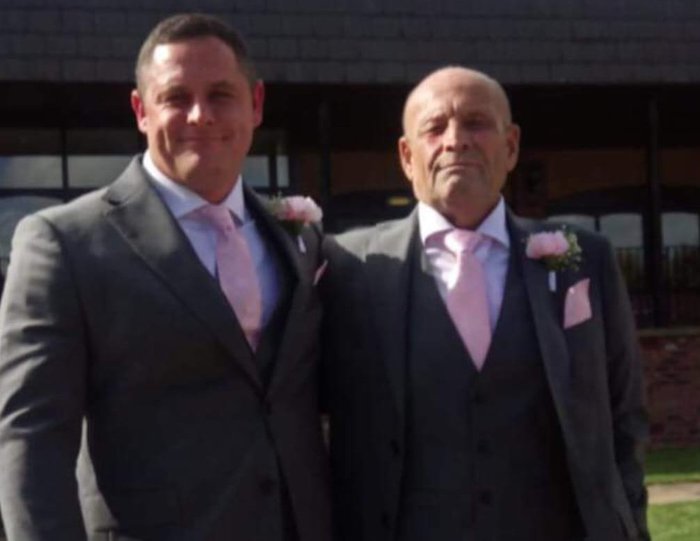We didn’t know Dad was still vulnerable to covid. People with blood cancer deserve to be told the truth
Philip's family did everything they could to keep him safe from Covid, but sadly it wasn't enough. Philip's daughter, Gemma, shares their heartbreaking story with the hope that better vaccine information will be given to people with blood cancer in future.

Philip pictured with his daughters
My 73-year-old father, Philip, was diagnosed with MDS in May 2020.
He was originally given a prognosis of 8-18 months to live and placed on palliative care. But his treatment went so well he went nearly a year without a blood transfusion, and when his consultant did a bone marrow biopsy, there was no active cancer in his blood.
The chemo was going to continue on to keep the cancer at bay, but my father was no longer receiving palliative care. He joined the thousands of people who are lucky enough to manage their blood cancer through treatment.
Getting his first vaccine
My father got his first dose of the AstraZeneca vaccine in January 2021. He was looking forward to it. He’d been shielding for a long time and supported the vaccine rollout. He looked at it as his path towards having some normality back in his life.
As a family, we did our bit to keep him safe from Covid too.
Dad received his second dose in April. He started to go to the shops and tried to be more independent.

Philip pictured with his grandson, Roman
He was doing so well and was gaining weight. He was living with blood cancer, and his blood tests were all good.
In July my dad started getting coronavirus symptoms. He took a test which came back positive, and he started self-isolating.
But even then, we weren’t worried
I have two sisters who work for the NHS, one being a nurse who worked on the covid ward. We all thought Dad would be okay. He seemed fine, apart from a few aches and pains.
We were all under the impression that even though there was a chance Dad could catch covid, even if he did he wouldn’t become seriously ill.
On day nine of self-isolating, Dad seemed to be a little confused so me and my sister went to check his oxygen levels. We were shocked to find his lowest oxygen reading was 49, and we immediately called for an ambulance.
At the hospital they told us that they wouldn’t ventilate Dad as he wouldn’t be strong enough for that.
He fought and fought this awful virus, did all the doctors asked of him. But his body wouldn’t let him.
Losing a loved one
On the 24th of July my dad passed away. We were there, his family, by his side.
My dad didn’t want to die. He’d already faced blood cancer and he wanted to fight covid. It was a heart-breaking scene to go into a hospital to see your father sat up in bed with all his organs fit and healthy except for his lungs.
After the doctors withdrew oxygen, we sat by his side and comforted him until he took his last breath 10 hours later.

Philip pictured with his son, Joseph
We need answers, and so does everyone with blood cancer
The whole point of the vaccine rollout was to get the vulnerable vaccinated first to keep them safe. But not one medical professional had informed my dad that the vaccines may not work for him.
This is all we needed to be told as a family. We would have carried on protecting him. But he was told nothing by his consultant, and it breaks my heart.
As a family we are absolutely devastated. Dad put his trust in the government and I feel like he has been failed.
I know for sure that if someone had informed my dad, then he would still be here.
I know that because we would have kept him safe – just as we had done for over 12 months before.
Our situation was completely avoidable. I’m sharing my story because people with blood cancer need to be informed that the vaccine isn’t as effective for them as it is for others. I hope that in future they’ll be told by their healthcare team, because no one should have to experience the same heartache we did.
